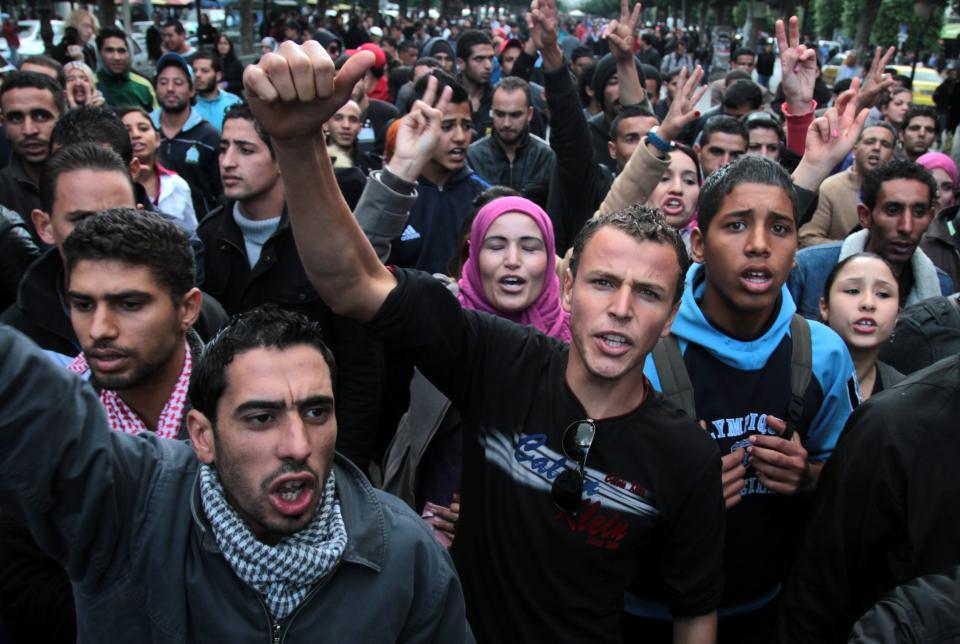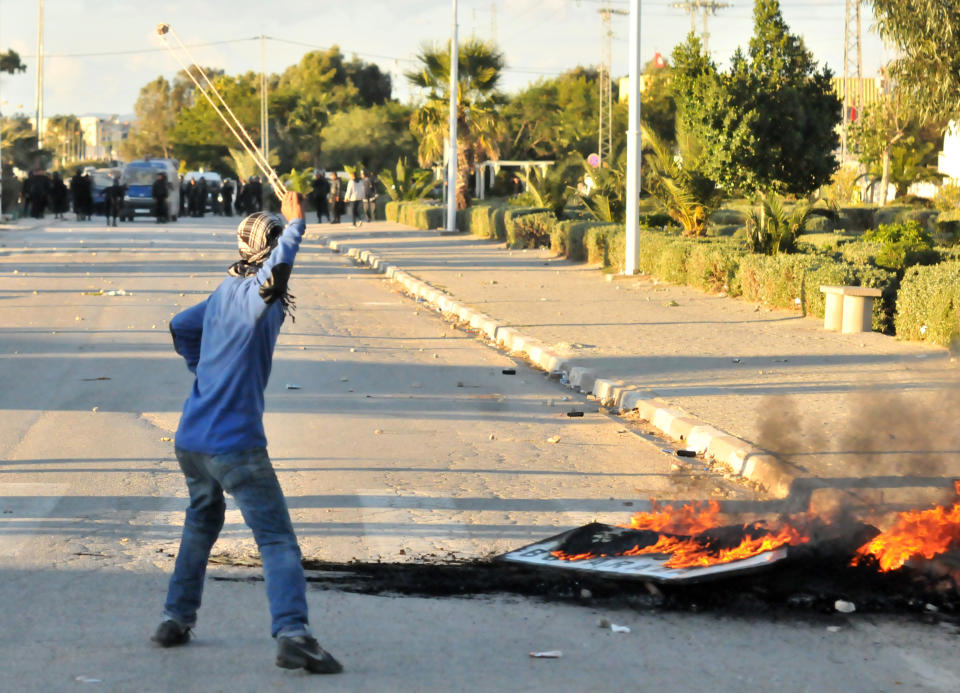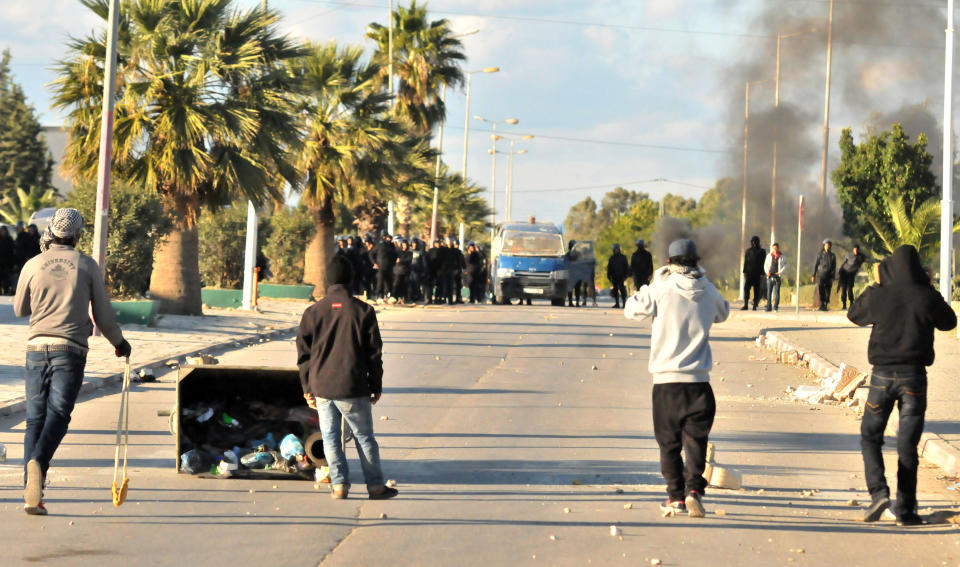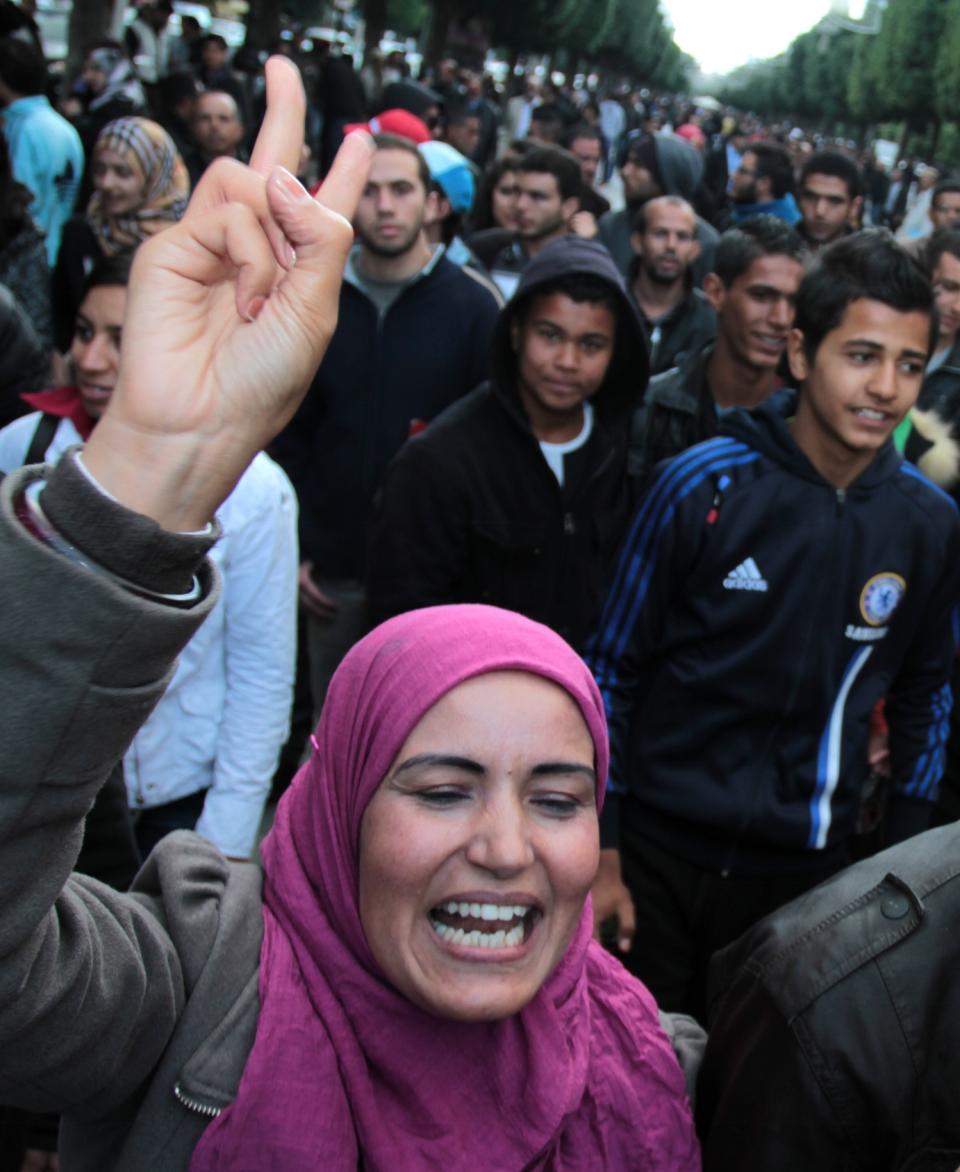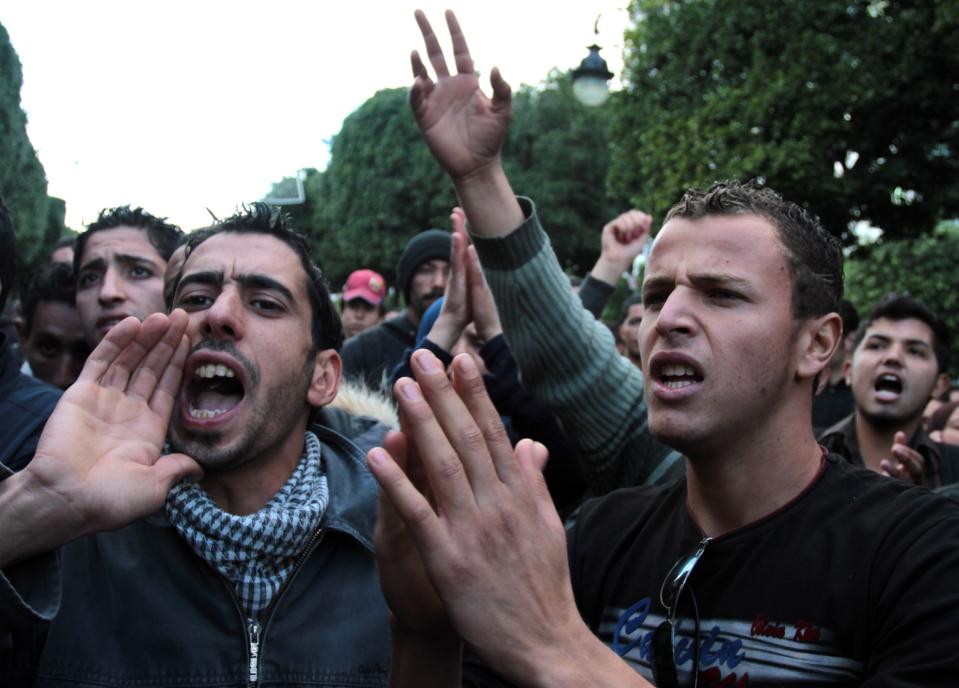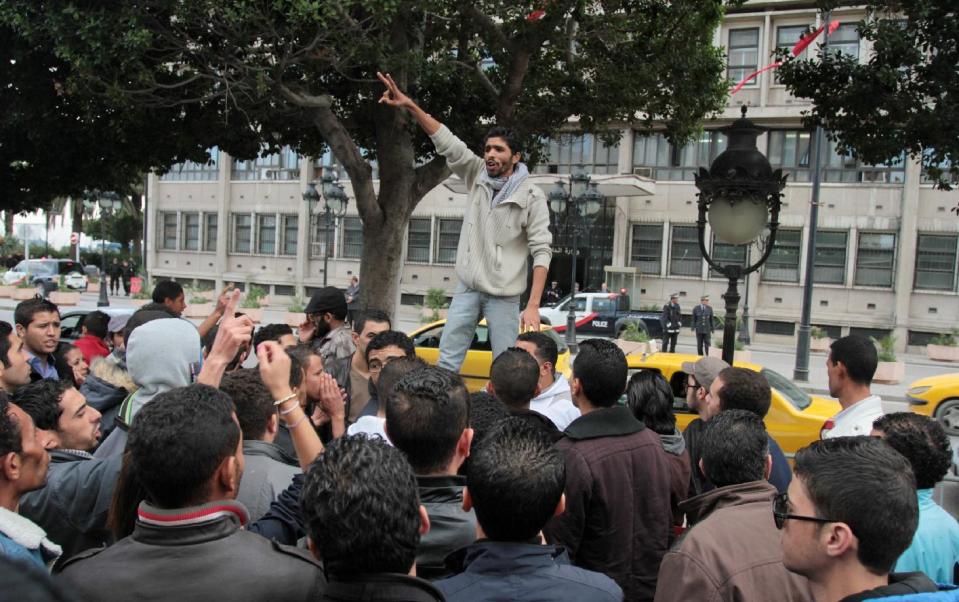Tunisian PM slams those behind recent riots
TUNIS, Tunisia (AP) — Tunisia's prime minister accused opposition parties and unions Thursday of provoking three days of violent clashes and pleaded for patience while the government tackles the nation's economic problems.
The army had to intervene Thursday between police and protesters in the interior town of Siliana to stave off another day of clashes as striking residents demanded jobs, government investment and the resignation of the local governor.
Prime Minister Hamadi Jebali accused leftist opposition parties and unions for being behind the general strike in Siliana that degenerated into stone-throwing clashes with police, who tried to disperse protesters with tear gas and shotguns.
"The only loser in these troubles is the democratic edifice that the government is trying to put into place," he said at a press conference. "These people don't want democracy, just chaos and destruction."
The local hospital said the riots had left more than 300 people, including at least a dozen in danger of losing their eyesight from shotgun pellets.
Some 15,000 people marched through the town Thursday to call for the governor's resignation. They then clashed with police until the army moved in to restore order, witness Mouldi Kenzizi told The Associated Press.
Siliana is in the North African nation's poor interior, which has long suffered from a lack of jobs and investment — a situation that has only become worse since the overthrow of President Zine Abidine Ben Ali in January 2011.
Residents said they were demonstrating Thursday in response to the government's continued refusal to dismiss the unpopular governor, Ahmed Mahoubi, a member of the Islamist Ennahda Party that dominates the government.
Residents of neighboring towns joined Thursday's protest march and there were also demonstrations in solidarity throughout the province and in the capital — including attacks on police posts and headquarters of the Ennahda Party.
Siliana residents were also calling for the release of 14 people arrested 20 months ago and still being held without trial.
Tunisia's economy, based in large part on European tourism and exports, has suffered after the revolution and with the European economic crisis. On Tuesday, the World Bank approved a $500 million loan to help support reforms in the financial sector to encourage investment and growth.
Jebali said there would be an independent investigation into the causes of the clashes.
"We do not have a magic wand to satisfy all the needs of the population in just 10 months, but we are open to a dialogue with all parties to work together," he said.
